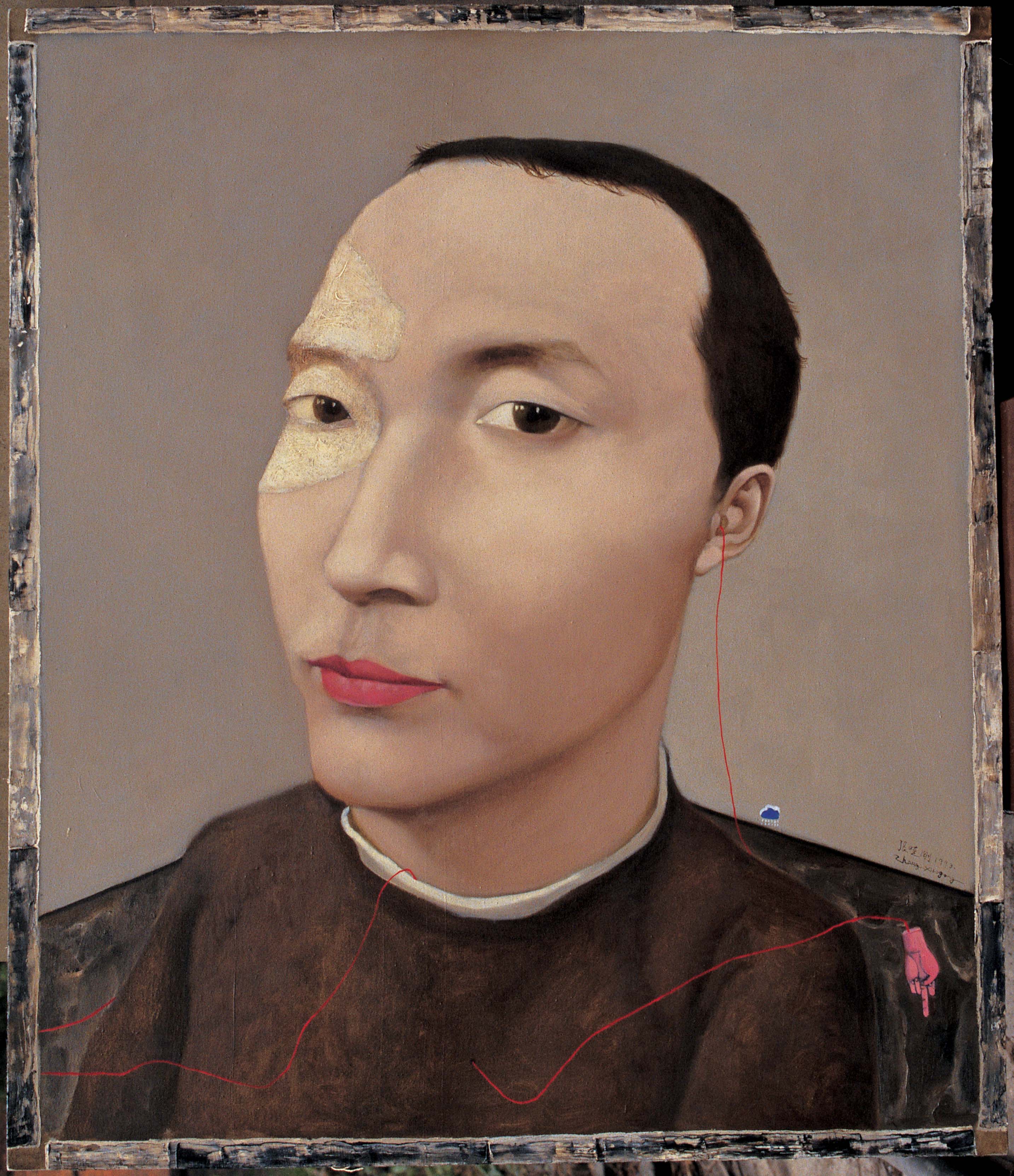
张晓刚
血缘系列:陈为民
1993
油彩画布
100.4×85 cm
冷静而又非理性;充满幻想而又保持应有的节制;真实可怖却又令人感到陌生;利用可见的物体,使人的思维跨入不可见的隐秘隧道,呈现出某种神秘的哲理和灰色的幽默——马格利特的这种魅力使我长久地着迷,同时也成为我长期以来对自己艺术的某种价值判断和境界追求。
(张晓刚,《我的知己——马格利特》,2000【节选】)
无论是“血缘”还是《大家庭》都是一种真正意义上的“个人叙事”,在张晓刚把自己定位成为一位“内心独白型”的艺术家时,营造一个祛神后的“个人世界”就成为当务之急,这是一种由形而上的宗教叙事向经验化的个人叙事的转移,由抽象的生命存在向具体的世俗生活发问的转移,由尊神的卡夫卡向渎神的昆德拉的转移;也是视觉上由象征性表达向意象化描述的转移,由空间性叙事向时间性叙事的转移。
《大家庭》关心的仍然是孤独的个体在历史和集体中的命运,但那些历史化的公共世界不仅构成个人生活的背景,它还是个人命运得以展开的直接母体。这一主题很像加西亚·马尔克斯笔下马贡多的布恩蒂亚家族,虽然它不能像后者那样提供宏大诡谲的历史场景和跌宕起伏的人物命运,但无论涉及的问题和表现手法我们都能找到它们的相通之处:家族性神话原型与突变性的现代命运的交融与冲突,时间和记忆消失造成的巨大的心理恐慌和焦虑,意象性的象征叙事形成的陌生化和距离感。从这个意义上讲,《大家庭》更像是一部视觉化的《百年孤独》,一部有关普通中国人的“日常生活的史诗”。
(黄专,《张晓刚:一个现代叙事者的多重世界》,2008【节选】)

